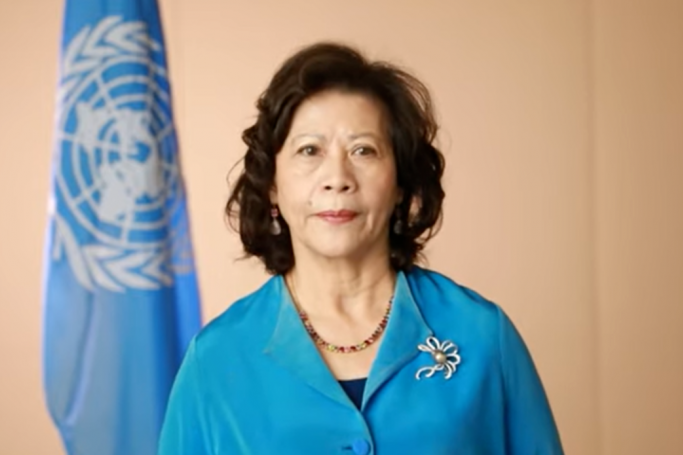The United Nations’ handling of the Myanmar crisis has - according to critics - left a lot to be desired.
One year after the February 2021 military coup, the Golden Land is in dire straits both in terms of the threat to human rights and lives posed by the illegal junta and the toll the crisis has taken on employment, business and the overall economy.
Myanmar looks set to become a basket case unless something drastic is done.
Given the call by Myanmar citizens for an end to brutal junta rule and the sensitivity of the situation, it is not too surprising that there was an explosion of anger over the Channel News Asia interview with UN Special Envoy Dr Noeleen Heyzar last week.
Given its importance, Mizzima Weekly has highlighted the issue in our cover package this week.
Many Myanmar citizens have been protesting for an end to the military regime and the return of democratic rule, a growing number of the younger generation joining the ranks of the resistance movement under the label People’s Defence Forces or PDFs.
Given the public anger, many – including hundreds of CSOs – were upset by the stated notion, voiced by the interviewer, that the UN Special Envoy was advocating for a “power sharing” arrangement with the military junta as a path to peace. In addition, what also ruffled feathers was the suggestion that young people, who are putting their lives on the line to fight against the junta, should somehow moderate their stance.
More detail of the spat can be found in our stories in this issue. But in essence, there appears to be a flawed understanding on the part of the UN Special Envoy as to the gravity of the situation and the frustration of the Myanmar citizens caught up in this dire and frightening situation.
As Mizzima Weekly has noted before – the UN blue-helmeted cavalry is not coming to the rescue. Many Myanmar citizens have been calling on the UN to send in peacekeepers and to operate no-fly zones in conflict-ridden areas of the country. Yet, the UN seldom steps in physically to intervene, as can be noted with many other conflicts around the world. All we are seeing is a verbal intervention and the entertaining of sanctions.
Special Envoy Ms Heyzar is obviously trying to advocate for peace and a way to put the country back onto its democratic track. There is no suggestion that malice is at work in the way she is trying to bring all players to the negotiating table. But the suggestion that the junta must be involved in this process has riled everyone from the alternative National Unity Government (NUG), to CSOs, to PDFs – the latter dying on the battlefield as they seek to end military rule once and for all.
This puts Ms Heyzar in a tricky spot. The UN Special Envoy has only just taken up her role and has been immediately embroiled in controversy. Going forward, she will have to be extra-careful in weighing her words.












